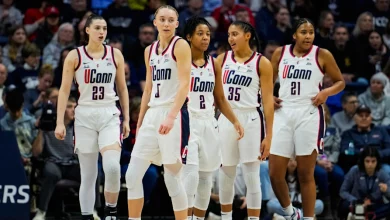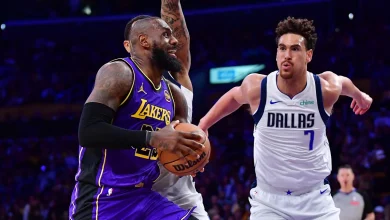A big-name Toronto winger makes sense to replace Corey Perry on the Oilers, bringing veteran scoring, leadership, and experience to bolster their forward depth.

The NHL offseason is a period of transformation, opportunity, and sometimes surprise moves. As teams fine-tune their rosters for the upcoming season, strategic signings can have a significant impact on a team’s outlook. The Edmonton Oilers, with their high-powered offense led by Connor McDavid and Leon Draisaitl, are always looking to maximize their roster’s potential.
Recently, speculation has arisen around the possibility of adding a high-profile winger, particularly one with ties to Toronto, to fill the role once held by Corey Perry. Perry’s leadership, physicality, and veteran scoring contributed to the Oilers’ depth last season, but as the team looks to elevate their competitiveness, a big-name Toronto winger could be an ideal fit.
This comprehensive analysis examines why a prominent Toronto winger makes sense as Perry’s replacement, the qualities they bring, how they fit into Edmonton’s system, and the broader strategic implications.
1. Context: Corey Perry’s Role and the Oilers’ Needs
Corey Perry’s Contribution
Corey Perry’s tenure with the Oilers was marked by veteran leadership, gritty play, and timely scoring. Known for his playoff experience and physical style, Perry provided the team with depth, especially on the fourth line and in key situations. His presence in the locker room was also valuable, offering mentorship to younger forwards.
Why the Need for a Replacement?
While Perry’s role was important, the Oilers may look to upgrade by adding a player with more offensive upside or higher-profile status. The organization’s core offensive talent is formidable, but adding a big-name winger could:
- Boost scoring depth
- Provide veteran leadership and experience
- Add physicality and playoff grit
- Improve team chemistry and locker room presence
2. The Appeal of a Big-Name Toronto Winger
a) Name Recognition and Proven Production
A prominent Toronto winger—such as William Nylander, Mitch Marner, or a similar high-caliber player—brings star power, proven offensive production, and playoff experience. Acquiring such a player would be a statement move, signaling Edmonton’s ambition and desire to contend.
b) Fit with Edmonton’s Style
The Oilers’ style revolves around high-speed, high-skill hockey, anchored by their superstar centers. A winger with offensive flair, skating ability, and playoff experience complements McDavid and Draisaitl perfectly, especially if they bring physicality and defensive responsibility.
c) Leadership and Experience
Toronto’s big-name wingers are often seasoned veterans or emerging stars who have experienced playoff pressure, adding mental toughness and leadership to the Oilers’ dressing room.
3. Potential Candidates and Why They Make Sense
While the specific name will vary depending on the market, several Toronto wingers could theoretically fit the profile of a Perry replacement:
a) William Nylander
- Offensive Prowess: Nylander is a dynamic scorer with exceptional skating and playmaking ability.
- Experience: Has played key roles in Toronto’s playoff runs.
- Fit: His offensive skill set complements McDavid’s playmaking.
- Trade Feasibility: While a significant package may be required, his talent level makes him a tantalizing target.
b) Mitch Marner
- Elite Playmaker: One of the league’s top playmakers with a high hockey IQ.
- Leadership: A young leader with playoff experience.
- Fit: Adds a different dimension to Edmonton’s attack.
- Trade Challenges: Likely cost-prohibitive, but a hypothetical scenario worth considering.
c) Michael Bunting
- Physical Forward: Known for grit, tenacity, and timely scoring.
- Chemistry: Has played well alongside Marner and Matthews.
- Salary Considerations: More affordable than Nylander or Marner, and could be a good fit.
d) An Under-the-Radar Big Name
Aside from Toronto, other high-profile wingers might be available via trade or free agency, such as Patrick Kane (if still available), or veteran scorers seeking a fresh start.
4. Why Would a Toronto Winger Make Sense for Edmonton?
a) Filling a Leadership Void
While the Oilers have star talent, they also need seasoned veterans who can elevate team chemistry. A Toronto winger with playoff experience and leadership qualities would help mentor younger players and stabilize the dressing room.
b) Bolstering Offense
Adding a proven goal scorer or playmaker would deepen Edmonton’s offensive arsenal. Especially if the player can operate on the top line or as a consistent secondary scorer, it would take pressure off McDavid and Draisaitl.
c) Enhancing Power Play and Special Teams
A skilled winger from Toronto with power-play experience could boost Edmonton’s special teams, a critical factor in playoff success.
d) Creating a Dynamic Lineup
Pairing a high-end Toronto winger with McDavid or Draisaitl could produce one of the league’s most potent lines, creating mismatches and offensive opportunities.
5. Strategic and Cap Considerations
a) Trade Assets and Cap Space
Acquiring a big-name Toronto winger would require significant assets—prospects, draft picks, or young NHL players—and careful cap management. Edmonton must evaluate whether the cost aligns with their championship window.
b) Cap Flexibility
The Oilers might need to make trades or utilize LTIR to accommodate a high-salary player. They must balance short-term gains with long-term cap health.
c) Contract Length and Financial Terms
A player of this caliber would likely command a multi-year deal with substantial annual salary. Ensuring the contract fits within Edmonton’s salary cap structure is crucial.
6. Broader Impact and Implications
a) Signal of Intent
Securing a big-name Toronto winger would send a strong message to fans and the league that Edmonton is committed to contending and willing to make bold moves.
b) Competitive Edge
Adding a star winger could elevate the team’s offensive consistency, especially in tight playoff games, where depth and star power matter most.
c) Potential Disruption or Chemistry Concerns
While the addition brings upside, integrating a high-profile player into an established core requires careful management to avoid disrupting team chemistry.
d) Future Flexibility
Long-term contracts or high salaries could limit flexibility in future seasons, so the team must weigh immediate gains against future implications.
7. Challenges and Risks
- Trade Cost: High-profile players command significant assets.
- Cap Constraints: Managing salary cap while accommodating a star is complex.
- Team Fit: Not all star players mesh well with Edmonton’s style or locker room.
- Market Dynamics: Other teams may also be interested, driving up the price.
8. Historical Precedents and Lessons
Teams have successfully acquired big-name players mid-season or offseason, such as the Tampa Bay Lightning acquiring veteran stars to push for a Cup or the Pittsburgh Penguins trading for top-tier talent before their Stanley Cup runs. These moves often require boldness and strategic planning but can payoff if executed well.
9. Conclusion: Is the Move Plausible and Worthwhile?
Bringing in a big-name Toronto winger to replace Corey Perry on the Oilers is a tantalizing idea. The fit makes sense from a talent, leadership, and offensive perspective, especially if Edmonton aims for a deep playoff run.
However, such a move depends on several factors:
- The willingness of Toronto to trade a star player.
- The trade cost and cap implications.
- The team’s ability to integrate the player into their system.
- Long-term strategic planning and financial health.
If Edmonton can navigate these challenges, securing a prominent Toronto winger could significantly elevate their chances of contention and bring a new dimension to their offense. It would also demonstrate their commitment to winning and their willingness to make bold roster moves.
Final Thoughts
In sum, a big-name Toronto winger making sense as a Perry replacement for the Oilers hinges on the right player, the right deal, and the team’s capacity to adapt. While not without risk, the potential upside—adding star power, veteran leadership, and scoring punch—could make such a move a pivotal moment in Edmonton’s quest for the Stanley Cup.









